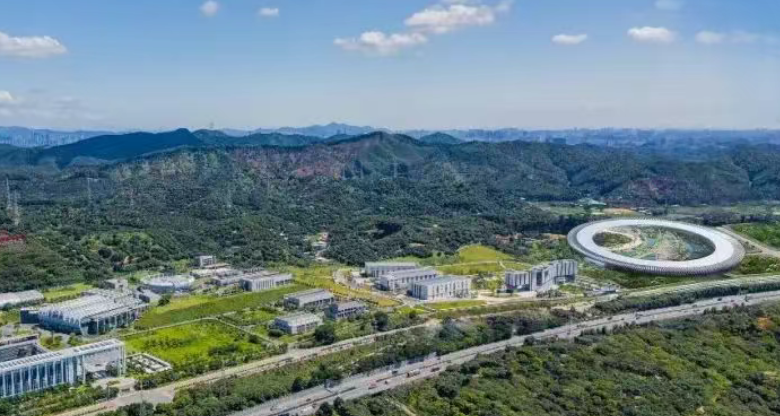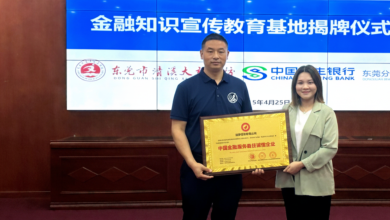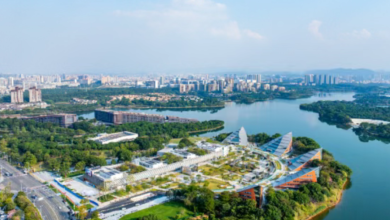Dongguan’s Return to The Fifth Foreign Trade City: What’s Behind It?

Dongguan, once considered China’s “factory of the world,” has made a remarkable comeback as the “Fifth Foreign Trade City,” surpassing Ningbo with impressive growth in foreign trade. According to the latest data from Huangpu Customs, Dongguan’s import and export value reached 749.28 billion RMB in the first half of 2025, a 16.5% year-on-year increase, the fastest among major foreign trade cities in Guangdong Province. This surge in trade is not only a sign of Dongguan’s strong economic resilience but also signals the city’s successful industrial transformation. But what factors are behind Dongguan’s remarkable rebound in the global trade arena?
Key Drivers of Dongguan’s Foreign Trade Surge
There are three main factors contributing to Dongguan’s success in regaining its position. First, the “export rush” effect, driven by Guangdong’s proactive response to anticipated U.S. tariffs, allowed companies to release their production capacity ahead of time. Second, the low base advantage from last year, when export growth was slower, made it easier for Dongguan to see strong growth this year. Third, Dongguan has optimized its market structure by expanding into emerging markets, including Southeast Asia, India, and the Middle East, which has boosted exports substantially.
Dongguan’s Expanding Global Network
Dongguan’s port has seen significant expansion, particularly with the new African trade route, which opened up opportunities to service countries like Algeria. This marks a major step in Dongguan’s contribution to China’s Belt and Road initiative. In the first half of 2025, Dongguan’s trade with the EU and other traditional markets grew by 10.9%, while exports to emerging markets such as ASEAN, India, and Latin America surged, with growth rates of 43.5%, 21.5%, and 31.5%, respectively. This growing international outreach is pivotal to Dongguan’s foreign trade success.
Overseas Business Challenges Facing Dongguan Enterprises
As Dongguan accelerates its global expansion, many local enterprises are encountering new challenges in overseas markets. While their manufacturing strength is undeniable, operating internationally often exposes gaps in legal, financial, and operational readiness.
A common issue is the lack of overseas corporate identity, which can hinder everything from securing contracts to opening bank accounts abroad. Without a formal local presence, businesses often face trust issues with foreign partners, restrictions on payments, and limited access to local market resources. For this reason, 海外公司注册 has become an increasingly important step for Dongguan enterprises aiming to globalize. By registering a company overseas, businesses not only gain legal standing in target markets but also enjoy improved credibility, smoother logistics coordination, and more favorable trade conditions.
Additionally, differences in tax systems, regulatory compliance, and intellectual property laws often pose risks for businesses without dedicated legal teams. Missteps in these areas can lead to delays, penalties, or even the loss of key market opportunities.
To stay competitive, Dongguan companies must go beyond exporting products—they need to build international foundations. Whether it’s Southeast Asia, Europe, or the Middle East, timely and strategic 海外公司注册 is becoming a vital part of Dongguan’s new foreign trade playbook.
The Role of Private Enterprises in Dongguan’s Foreign Trade Success
Private enterprises play a crucial role in Dongguan’s foreign trade resurgence. In the first half of the year, Dongguan’s private enterprises saw a 24.4% growth in exports, contributing 62.7% of the city’s total foreign trade volume. Companies like Boliwei Technology, which manufactures lithium batteries, have led the way in exporting “Made in Dongguan” products to global markets. Their increasing production capacity and market reach have placed Dongguan at the forefront of global manufacturing.
Continued Innovation in Dongguan’s Export Products
Dongguan’s success is not just about volume; it’s about the quality and innovation embedded in its products. In the first half of 2025, exports of high-tech products, such as advanced equipment and electronic information products, saw a significant jump. The city has become a hub for the production of high-end smartphones and other electronic devices, contributing to China’s growing dominance in the global tech industry.
Conclusion: Dongguan’s Strategic Shift Towards High-Value Manufacturing
Dongguan’s return to the title of “Fifth Foreign Trade City” highlights its strategic shift toward higher-end manufacturing and innovation. From being a factory hub, Dongguan has transformed into a leader in high-tech industries, with an increasing presence in global supply chains. By focusing on upgrading its industrial base, Dongguan has positioned itself as a critical player in reshaping the global value chain. This transformation proves that continuous innovation and investment in higher-value industries are essential for thriving in today’s rapidly changing global economy.





